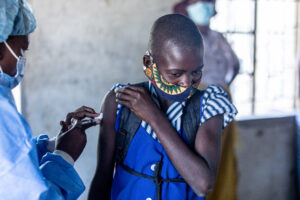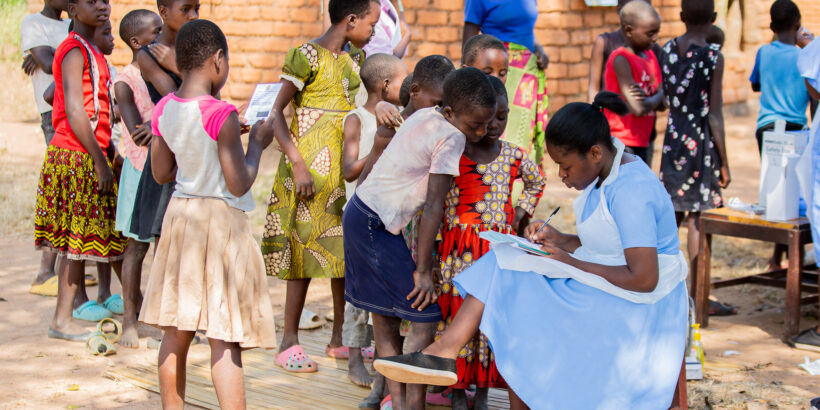Drug resistance is a major global health challenge and it’s getting worse. A multitude of factors are contributing to the growth of drug resistance in general, and drug-resistant typhoid specifically – including a lack of diagnostics, overuse and misuse of antibiotics, limited surveillance, and suboptimal vaccination rates. The burden is further exacerbated by inadequate access to safe water in which pathogens are transmitted, insufficient prevention and control efforts, as well as a lack of funding and political support. The sub-Saharan Africa region has the highest burden of drug resistance globally. In 2019, drug resistance was responsible for 255,000 deaths in Africa – more than 20% of the global total. African health officials are drawing attention to this growing health concern on the continent. A recent African Union report shared key research findings and detailed the need for swift preventative action to reduce this rising global health challenge.

Drug resistance and WASH
While the increase of drug resistance is daunting, we have effective tools to reduce the threat from drug resistant typhoid. Clean water, sanitation, and hygiene (WASH) is critical to prevent the spread of typhoid. The risk of typhoid increases without safe water, adequate sewage disposal, wastewater treatment, and proper sanitation as the bacteria that cause typhoid can spread through contaminated water and food. Improving WASH infrastructure requires significant capital investment and sustained political will. The African Union report highlights that only 13% of African countries have enacted nationwide WASH programs, as well as infection and prevention control programs, that meet World Health Organization (WHO) guidelines. This leaves many communities vulnerable to healthcare-associated infections and waterborne diseases that, when misdiagnosed or mistreated, can lead to increased drug resistance. While immense resources are required to improve WASH infrastructure and enhance infection prevention, investments in these areas could save approximately 700,000 lives annually.
Immunization as effective prevention
These data from the African Union report demonstrate the need for a comprehensive, multi-sectoral approach to address drug resistance on the continent. While progress is made in advancing WASH and other infection prevention initiatives in the long term, immunization provides nearly immediate protection. Typhoid conjugate vaccines (TCVs) are safe, effective, and provide protection for at least four years after a single dose. Vaccines are essential to prevent drug resistance. TCVs work to prevent individuals from getting sick, therefore reducing the need for antibiotic treatment and decreasing the emergence and spread of drug-resistant typhoid strains. Research has found TCVs to be 97% effective against multidrug- and extensively drug-resistant typhoid. TCVs are also projected to be one of the most impactful vaccines to prevent drug-resistance-associated deaths. As countries combat the growing challenge of drug resistance, including TCVs and other vaccines in comprehensive national AMR strategies are an effective way to prevent illness and pathogen transmission, and decrease the need for antibiotics.
Although drug resistance is not new, ongoing research and reporting help to track the growing burden on community health. We must work collaboratively to ensure access to improved WASH and expanded uptake of immunization to reduce the spread typhoid and other drug-resistant pathogens.
Cover photo: A nurse registers children to receive a typhoid conjugate vaccine (TCV) in Lilongwe, Malawi as part of an integrated vaccination campaign. Credit: TyVAC/Madalitso Mvula.



